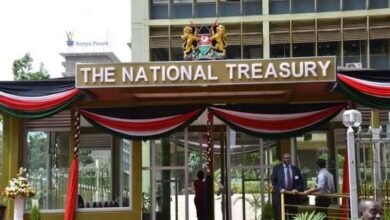
Egypt is facing a deepening economic crisis as its credit outlook was downgraded by Moody’s and its currency plunged to a record low on the black market.
The country is struggling to secure enough foreign exchange to meet its debt obligations and import needs, amid rising political and security risks in the region.
Moody’s cut Egypt’s outlook from stable to negative while affirming its Caa1 rating, which is seven notches below investment grade.
Moody’s cited the “very weak debt metrics and elevated exposure to foreign exchange and interest rates risks” as the main drivers of the negative outlook.
Moody’s warned that Egypt’s debt burden, which is expected to reach 110% of GDP by the end of this fiscal year in June, poses a high risk of restructuring, especially if the country fails to secure sufficient external financing.
According to the rating agency, Egypt’s interest payments, which absorb about two-thirds of its revenue, limit its fiscal flexibility and increase its vulnerability to shocks.
Egypt has been in talks with the International Monetary Fund (IMF) to increase its $3 billion loan program, which was agreed in June 2023, but has been delayed by the IMF’s concerns over the country’s fiscal and monetary policies.
The IMF has urged Egypt to adopt a more flexible exchange rate regime, reduce its energy subsidies, and implement structural reforms to boost growth and competitiveness.
However, Egypt has been reluctant to devalue its currency, the pound, fearing the inflationary and social impact of such a move. The central bank has maintained the official exchange rate at 30.9 pounds per dollar since November 2023, despite the widening gap with the parallel market, where the pound has fallen to about 60 per dollar this week, according to Bloomberg.
The discrepancy between the official and unofficial rates reflects the acute shortage of foreign currency in Egypt, whose foreign reserves have dropped by more than 40% since January 2023, reaching $35.17 billion in December.
The scarcity of dollars has also affected the banking sector, which has imposed strict limits on foreign currency transactions and withdrawals.
Some banks have resorted to buying dollars from the black market to meet the demand from their customers, especially importers and foreign companies, who face difficulties in repatriating their profits.
The rising cost of living has eroded the purchasing power of millions of Egyptians, who are already suffering from high unemployment and poverty. The social discontent has increased the risk of political instability and unrest, especially ahead of the presidential election scheduled for May 2024.
Egypt’s economic woes have also been exacerbated by the recent attacks on the Suez Canal, a vital source of foreign currency and trade for the country. The canal, which connects the Mediterranean and the Red Sea, has been targeted by the Houthi rebels in Yemen, who have launched several drones and missiles at the ships passing through the waterway.
The attacks have caused a decline in the canal’s traffic and revenue, as well as a rise in the insurance and security costs for the shippers.






I am really inspired together with your writing abilities and also with the format in your blog. Is that this a paid subject or did you customize it your self? Anyway keep up the excellent quality writing, it is uncommon to look a nice blog like this one these days!
I don’t think the title of your article matches the content lol. Just kidding, mainly because I had some doubts after reading the article.
Your point of view caught my eye and was very interesting. Thanks. I have a question for you. gate “oppna konto